|
The authentic Christian life resounds with love. Beyond any fleeting attraction or fondness, this love is not meant to be hoarded, but to be given in charity and service to others. The love of a Christian reflects the love of God, without Whom we would not exist nor would we have the capacity to love beyond the other, lesser creatures of this planet. This love cannot be restricted to a single day on the calendar but is meant to flow freely every day at every hour through every difficulty and joy, every sorrow and labor, and every moment of pain and peace. It is love which motivates us not only to live for others, but always for the glory of God.
Normally, the marital love between a man and a woman manifests and literally takes on new life in the conception of a child. That child adds another wonderful dimension to the love of married life that encompasses parenthood. Years of teaching, correcting, protecting, caring for, playing with, cherishing, and feeding children are physical and emotional applications of love purposed with raising them as members of the domestic church. Eventually, the outpouring of parental love for children can be reciprocated by them in selfless acts of charity, gratitude, joy, or other expressions of affection. Think of the times your parents would beam at seeing your room tidy without asking, warmly embrace you, offer a surprise gift, or watch you shine at school or on the field. Similarly, the example of love shown between parents is not lost on children. This example imprints the strength of the sacrament of marriage—especially during times of difficulty or stress—and encourages children to better appreciate and actively participate in the love of family life. For example, chores or other labors may be done more freely as intrinsically valuable to the functioning of the domestic church; without love, children might only begrudgingly pick up after themselves when forced. How does love otherwise radiate through family life? The eyes which looked upon the spouse on the wedding day can continue to hold the same gaze of awe-filled love through later moments of despair or pain. The hands which exchanged wedding rings can embrace one another with tenderness, consolation, joy, or mercy. They can also be used in service to the poor, the lonely, or the dying. The lips which uttered sacred vows can impart wisdom, praise, blessings, or part in radiant smiles. Just as God lovingly created the human body down to the smallest detail as “good”, so too can the body we have been gifted be utilized to facilitate God’s love among loved ones and neighbors. Perhaps the first lesson your parents taught you was that God is love. By virtue of our baptism, we have become adopted sons and daughters of our Heavenly Father. As such, every answer to our prayers is entirely out of love, regardless of the result. Similarly, our parents, having been entrusted with caring for us, draw upon the love in their marriage to instruct, guide, nourish, or chastise. While our parents’ love may be imperfect, we can look upon the perfect example of the love of the Trinity to shape our applications of love to transcend human limitations. As St. Paul famously wrote, “love bears all things, believes all things, hopes all things, endures all things.” If it did not, how could any of us be forgiven for our sins against each other or God? How would salvation history exist without love? Authentic marriage or family life is not sustainable without love. And yet, our human limitations may restrict our application of love in certain circumstances. That is why love must be renewed. It must deepen over time to reflect the experiences of life and extend to others. Couples may go on date nights, retreats, vacations, or other activities which can foster relaxation and various communications of love. Similarly, we are reminded of God’s love at each Mass, in which recalling the ultimate Love on the cross helps us receive spiritual renewal to offer that same love to all we encounter. The spiritual renewal we attain allows us to recall the presence of God in our daily lives at every moment and to live up to the potential He calls us to. If our vocation is religious life, then we can hold steadfast to the rules of the order to which we belong and rejoice in our sacred calling. If we are single, we can allow ourselves to increase our capacity to love or extend it to others. If we are married, we can reaffirm the gifts of love in the family— raising children in the Faith or cherishing our spouse. In doing so, we realize that love does not come from ourselves. Rather, God, the source of all love, dwells in our hearts and provides the strength and courage to open ourselves in vulnerability to another. Our love may be spurned, mocked, or tested, but just as God will not refuse His infinite mercy to the hardest of sinners’ hearts, so too are we called to rise above human judgements or inclinations and extend to others the great gift of love God Himself never tires of bestowing. Question for Reflection: Who are some examples of authentic Christian love in your own life? For more resources on Marriage and Family, please click here.
0 Comments
“I am the servant of the Lord, may it be done to me according to your Word.” (Luke 1:38)
This passage from Mary’s fiat was the theme of this year’s World Youth Day (WYD). World Youth Day 2019 took place from January 22-27 in Panama City, Panama, where it gathered hundreds of thousands of young people from all over the world to share in the faith, culture, and joy of the Catholic Church. WYD is a pilgrimage for young people that includes times of reflection and prayer that often results in lifelong shared experiences with other people. Many people, myself included, couldn’t make such an international pilgrimage this year. Instead, I joined over 1,500 young adults from 20 different dioceses in the US for Panama in the Capital at The Catholic University of America in Washington, D.C. A stateside gathering like this is intended to carry the spirit of World Youth Day to people much closer to home, while also modeling the solidarity of the Catholic faith with those around the world who gather in God’s name. The Catholic Apostolate Center was asked to be a co-host and platinum sponsor of the event. Our role in Panama in the Capital helped the Center live out part of our mission of spreading the Gospel and increasing the awareness of the importance of young adults and their faith journeys within the Church. For us, it is as simple as Pope Francis said during the close of WYD: “You, dear young people, are not the future but the now of God. He invites you and calls you in your communities and cities to go out and find your grandparents, your elders; to stand up and with them to speak out and realize the dream that the Lord has dreamed for you.” For the Church, the importance of evangelization through the current generation of young people is critically important for the vitality of the Church in the present and for the cementing of the future of the Church. We were fortunate to have our Director, Fr. Frank Donio, S.A.C. give a presentation on how to lead as a Christian. Various staff were present to cover the event digitally for pilgrims. Our staff were asked to serve as Masters of Ceremonies during the event at the St. Vincent Pallotti Stage, and so Blog Editor Kate Fowler and Administrative Associate Brian Rhude volunteered their talents to welcoming presenters and musicians alike to the stage throughout the whole event. We were able to exhibit and provide resource materials for people in the area, as well as share in the general excitement of the event. Monica Thom Konschnik, the Center’s Assistant Director of Administration, had been working with the event’s planning team for 18 months when we finally all gathered together to celebrate. Fr. Frank was able to give some remarks to the gathered attendees for the Vigil Mass and also served as a concelebrant for the Mass. In the evening, staff were invited to assist in the candlelight Stations of the Cross in the Crypt Church in the National Shrine of the Immaculate Conception, with Archbishop William E. Lori, Archbishop of Baltimore, presiding. It was a wonderful event that was reminiscent of what happens at World Youth Day with the Holy Father. All in all, our young adult staff was present and contributed to this event with a sincere appreciation of the Church in its mission to evangelize. We were honored to make this international event more accessible to young people locally and pray that this experience helped many encounter Christ and celebrate the joy and wonder of World Youth Day. Questions for Reflection: What is your experience of World Youth Day? How can you show solidarity with those present at WYD within your local community? To learn more about WYD, please click here. “Jesus allows himself to be found by those who seek him, but to find him we need to get up and go.” -Pope Francis I remember getting up in the middle of the night years ago to try and glimpse a rare, hybrid, solar eclipse. My husband and I camped out at the Lincoln Memorial in the wee hours of the night with blankets and hot chocolate to wait for a rising sun that would be covered by the moon. Rich pink and orange hues danced across the sky, basking the surrounding monuments. Though there were clouds that day, we knew something mysterious and magical was happening above us. We were willing to sacrifice some sleep and wait in the cold just to catch a glimpse of that star. What did the magi see when they looked up in the sky over two thousand years ago? It was enough not only to make them camp out in wonder, but to set out in haste. Their journey required provisions, logistics, time, and great effort. But something in the sky beckoned them. I imagine it was similar to what Peter, Andrew, James and John saw in the face of Christ calling them on the beach – something so extraordinary and captivating that it called them out of their day-to-day routines to begin a new journey. Both the journey of the magi and that of the first apostles had the same end: Jesus Christ. These journeys show that an encounter with Jesus is life-changing. It sets us in motion: the journey of the magi, the life of discipleship and evangelization. This past Sunday, the Christmas season continued with the celebration of the Feast of the Epiphany. The Gospel reading recounted the journey and visitation of the magi to the Christ-child. As the Catechism of the Catholic Church states, “The Epiphany is the manifestation of Jesus as Messiah of Israel, Son of God and Savior of the world. the great feast of Epiphany celebrates the adoration of Jesus by the wise men (magi) from the East, together with his baptism in the Jordan and the wedding feast at Cana in Galilee.” The birth of Christ is the first outward manifestation of the Messiah. Jesus, whose name means “God saves,” is the revelation of God’s plan of redemption. After years of prophecy and expectation, longing and promise, God comes in the midst of his people in the most intimate way possible: as one of them. This Incarnation is awe-inspiring. So awe-inspiring, in fact, that it even draws strangers. The Messiah foretold was long-awaited by the Chosen People of God—the Israelites. And yet, how many do we see at the birth of our Lord? The Visitation of the Magi foretells the inclusion of the entire world in God’s plan of salvation. He has come not only to redeem Jews, but Gentiles—peoples of every land and nation. As Paul wrote in Sunday’s second reading, “the Gentiles are coheirs, members of the same body, and copartners in the promise in Christ Jesus through the gospel.” What can we learn from the magi? In his homily on the Feast of the Epiphany last year, Pope Francis boiled it down to 3 things:
Let us imitate the magi in our lives of discipleship. They were not complacent, but so observant that they were able to recognize God’s sign: the star. “The Magi were not content with just getting by, with keeping afloat,” Pope Francis said last year. “They understood that to truly live, we need a lofty goal and we need to keep looking up.” They were vigilant, ready to go when the time came. And their hearts were receptive, disposed to the signs of the times. From there, they set out on a journey which would lead them to Christ himself. This journey required effort, planning, and sacrifice. And finally, they came bearing costly gifts: gold, frankincense, and myrrh. They met the generosity of God by reciprocating generosity. Pope Francis continued, “To give freely, for the Lord’s sake, without expecting anything in return: this is the sure sign that we have found Jesus.” As we reflect on the significance of the Feast of the Epiphany, let us look to the example of the magi in our lives of discipleship. Let us look up beyond the distractions of the world in order to see God’s star. Let us take the risk of setting out on our journey closer to Christ with joy. And let us give generously to a world which needs the generous love and mercy of the Christ-child. Question for Reflection: What are some things in our life that might distract us from seeing God in the everyday? “Prepare the way of the Lord, make straight his paths.” - Luke 3:1-6
REFLECTION Isaiah, whose words the evangelist Luke repeats in this week’s Gospel, prophesized a beautifully uncanny world. According to the prophet’s vision, no valley would be too deep, no mountain or hill too high, no road too long or path too rough for God’s salvation to reach. When we understand this word, we recognize that the saving presence of God has no limitation. God’s revelation arrives everywhere and to all life wherever it may be. No one life stands below or above another in that radically horizontal and unfamiliar world. God disregards human hierarchies, borders, and definitions. This season, we celebrate, meditate upon, and commit ourselves to our world’s greatest mystery—God incarnate and among us in Christ. Just like those along the Jordan who were invited by John the Baptist, we are invited to work for the world to which Christ, the salvation of God, arrived. The world in which we recognize God is with us and in each one of us. The world whose mystery we know capable to reveal itself anywhere and at any moment of the day. The world in which each person enters in community without prejudice or judgement but with mutual respect because we know every person to be equally chosen and beloved by God. FOCUS: Simple Living When I reflect on what prevents us from treating each other as kin and caring for each other and our common home, indifference appears as our greatest challenge. Today our politicians run campaigns based on hatred, prejudice, and the blatant disrespect of other cultures. Today so many of us deny scientific facts and disregard how our planet is suffering while we choose to continue to live numb and blind. Preoccupied primarily by our economic wellbeing, we tolerate injustice and accept apathy. Simple living this Advent must mean making space for God and others in our hearts by ridding our lives of the material goods which make us apathetic to and complicit in others’ suffering. PRAYER Just and compassionate God, whose incarnate word reveals itself to the tender and humble hearted, we pray for healing from the hurtful divisions that human hierarchies, borders, and definitions impose. Send your Spirit to renew a world divided and suffering. May bigotry shake in the path of Your love and prejudice fade in Your understanding presence. You, good guardian, know each one of us to be Your chosen and beloved. Bless and protect us as we work for reconciliation, peace, and justice. SERVICE SUGGESTION Opening our hearts to the arrival of God begins with an honest reflection on what in our lives encourages our cultural indifference to the suffering of our planet and its most marginalized peoples. This Advent, think of the moral demands of our faith and analyze whether your life habits or practices adequately demonstrate your commitment to God, all God’s people, and all God’s creation. What will you do to reflect more of the light of Christ today? **This reflection is from the 2018 Advent Reflection Guide, a collaborative effort between the Catholic Apostolate Center and Catholic Volunteer Network. To see the whole guide, please click here. Kevin Ruano, Franciscan Mission Service DC Service Corps Happy New Year! We have officially brought the Church year to a close and have entered into a new liturgical year with the first week of Advent. It is a time of new beginnings and yet a profound time of waiting and preparation as we anticipate the joy of the birth of a tiny babe in a manger. I find it interesting that this time of waiting comes right at the beginning of the new liturgical year. In the secular world, New Year’s celebrations are immediate and urgent. We count down to the strike of midnight, kiss our loved ones, announce our resolutions, and toast the entrance of the next phase. Some of us celebrate the end of another passing year with relief. Some feel a deep hope and longing that the year to come will bring with it some rest and release from the trials and tribulations of the previous year. Others celebrate the successes of the year and look forward to hopeful continued success. No matter which category you fall into, the secular New Year brings with it some sense of urgency, of immediate change. In the Church’s liturgical year, we celebrate our “New Year’s Eve” with the celebration of Christ the King on the last Sunday before Advent. In Pope Francis’s 2013 homily he reminded us, “Jesus is the center of creation; and so the attitude demanded of us as true believers is that of recognizing and accepting in our lives the centrality of Jesus Christ, in our thoughts, in our words and in our works.” Pope Pius XI instituted this celebration in 1925 to help remind us that, “while governments and philosophies come and go, Christ reigns as King forever.” Can you feel it? Can you feel the excitement, hope, and assuredness infiltrating you as a believer of Christ, King of the Universe? And then we wait… This stark contrast brings with it the perfect time for reflection and re-evaluation. In thinking and reflecting on the Advent season at the beginning of this new liturgical year, I’m struck by the images that come to mind. The slow burn of a candle in the window, darkness in anticipation of the light of morning. We are searching, seeking, wanting, waiting. “Not all who wander are lost,” J.R.R. Tolkien wrote. Over the years it has become a fairly well known quote. How does this quote speak to you this Advent season? At times we may wander through the ebb and flow of our daily lives and this quote seems to reach out to us in an attempt to comfort us when we find ourselves in this place. But let’s take a deeper look at this particular quote. What does it mean to wander? To wander is to walk or move in a leisurely, casual, or aimless way. In what areas of your life have you been wandering? More importantly, do you know where you are going? Advent is the perfect time for reflection and re-evaluation. “Not all who wander are lost.” Is it true? Sometimes we need the casual and the leisurely. It can be good to have a moment to take a breath. This time of Advent at the beginning of our new liturgical year, though, is a time to challenge ourselves. Are we still wandering? Have we lost sight of our aim? Perhaps Advent is calling us out of our time of wandering and into a time of wondering. To wonder is to desire or be curious about something; to feel amazement, to marvel. What is your heart longing for this Advent season? Where in your life are you being called into a deeper relationship with Christ, King of the Universe? He is coming and His desire to know and love us is so great that He is coming as a vulnerable and dependent baby in a manger. “They name him Wonder-Counselor, God-Hero, Faith-Forever, Prince of Peace.” (Isaiah 9:5) He is coming. Are you ready? This season, let us remember, all that WONDER as they behold the Christ child will never be lost. Question for Reflection: What is your heart longing for this Advent season? For resources to prepare you for the Advent season, please click here. 10/24/2018 #Synod2018 Alive Among the Faithful: A Reflection on the Canonization Mass of October 14, 2018Read Now“We declare and define Blessed Paul VI, Oscar Arnulfo Romero Galdámez, Francis Spinelli, Vincent Romano, Mary Catherine Kasper, Nazaria Ignacia of Saint Teresa of Jesus March Mesa and Nunzio Sulprizio to be Saints and we enroll them among the Saints, decreeing that they are to be venerated as such by the whole Church.” -Holy Mass and Canonization of the Blesseds: Paul VI, Oscar Romero, Francesco Spinelli, Vicenzo Romano, Maria Caterina Kasper, Nazaria Ignazia di Santa Teresa di Gesu, Nunzio Sulprizio This was the moment I had waited months to experience: the official canonization of these seven men and women. This past May, I knew I would be studying in Rome for my fall semester of sophomore year. I wanted to know what, if anything, would be happening during my time in Rome. Little did I know that I would be blessed with attending a canonization Mass. I’ll say it again if you didn’t catch my excitement the first time: a CANONIZATION! But at this moment I know some of you are asking, “Tom, what is a canonization?” Well, I’m glad you asked, inquisitive reader. A canonization occurs when the Catholic Church formally recognizes that someone who has lived an exemplary life of holiness and virtue is now in heaven with God and can be prayed to and venerated in all the Catholic churches throughout the world. With this solemn declaration, they are added to the official canon, or list, of saints. The Catechism of the Catholic Church puts it this way: “by solemnly proclaiming that they practiced heroic virtue and lived in fidelity to God’s grace, the Church recognizes the power of the Spirit of holiness within her and sustains the hope of believers by proposing the saints to them as models and intercessors.” The next question you probably have is, “Tom, you said you waited months for the canonization Mass. Why were you so excited?” Dear reader, what a wonderful question! The answer is that I love the saints and want to grow in my relationship with as many of them as I can, in as many different ways as I can, because they are examples to all Catholics of how to live for Jesus Christ in this world. This canonization Mass was a once-in-a-lifetime way for me to exercise this desire. This is further illustrated by a beautiful and unintended consequence of my studying in Rome and attending the canonization Mass: I got to tangibly experience the saints. Let me explain. When I prayed at St. Peter’s tomb and later read the passage about how he walked on the water toward Jesus, I thought: “Woah, the Peter I’m reading about is the same Peter whose tomb I just prayed at.” When I prayed before the skull of the young Saint Agnes, I thought: “This is the skull of the patroness of my diocese. That’s amazing.” As my friends and I waited to enter St. Peter’s Square, we talked to a woman from El Salvador who listened to Oscar Romero’s homilies and was 19 years old when he was assassinated. She told us that when he was killed, she felt as if she had lost her own father. After she said this, I thought: “I have read about Oscar Romero’s life and sacrifice and how much he influenced the Salvadoran people, but I didn’t truly grasp it until I heard this story.” And that is the lesson: Catholicism isn’t dead—not even close. It is fully alive! It is an encounter with Jesus Christ through His saints who are alive among His faithful people here on earth! A final question you may have for me, and a question that I asked myself, is: “What lessons can we learn from these seven saints?” I believe we should emulate Pope Saint Paul VI’s fortitude for defending the truth of the Catholic faith, Archbishop Saint Oscar Romero’s passionate love for the poor and oppressed in our midst, Saint Francis Spinelli’s devotion to the Most Blessed Sacrament, Saint Vincent Romano’s zeal for the Word of God, Saint Mary Catherine Kasper’s “openness to the Holy Spirit,” Saint Nazaria Ignacia’s caring heart, and Saint Nunzio Sulprizio’s youthful devotion to the sufferings of Christ. I encourage you all to learn about these seven saints and as many saints as you can, and then to go tangibly experience them, however you can. Please click the following links for more resources on the canonization of Paul VI and Oscar Romero. Throughout the month of October, the Church gathers in Rome for the Synod of Bishops on Young People, the Faith, and Vocational Discernment. For generations, young people have heard that they are the future of the Church, and now Pope Francis, bishops from all over the world, auditors from various fields including youth and young adult ministry, and even some young people gather within the Synod hall to discuss this future and the young people that will help move the Church forward. On October 6, 2018, the University of Notre Dame’s Center for Ethics and Culture hosted an event in Rome titled, “’Behold, I make all things new’: A Conversation on Youth, Faith, and Vocational Discernment.” The event kicked off with a reception where members of the media, members of the audience, and Synod participants spent time talking and getting to know one another. Seemingly always talking with someone new was John Allen Jr., the founder and editor of Crux, the Catholic news outlet that was co-sponsoring the event with UND. As the start time of 7:30 approached, Mr. Allen announced in a loud voice that the Synod session had run long and the Bishops would be there soon. After the audience had gotten settled in the hall, Bishop Barron, Auxiliary Bishop of Los Angeles, and Bishop Onah of Nigeria entered the hall to a round of applause. Dr. Pia de Solenni, the Chancellor of the Diocese of Orange, moderated the event and welcomed Bishop Onah to give some opening remarks. After Bishop Onah shared some words, the six participants gave short testimonies to the audience and bishops present about their lives as Catholics. These participants from across the world, including countries such as China and Bermuda, shared about their relationships with the Church and God, the influence their families and friends had had on them, and their hopes for the Synod. The audience was clearly moved by these young people, not only by their courage to get up and speak in front of this crowd, but by their love for the Catholic Church and God. After the testimonies had finished, Bishop Barron and John Allen began a conversation on the topic of the Synod that was moderated by Dr. de Solenni. Mr. Allen provided interesting and challenging questions to Bishop Barron, but both provided an insightful view into the Synod and the different paths that the discussion and prayer could take. After the conversation, Bishop Onah was again invited up to provide his thoughts and reflections on the six young people’s testimonies. Bishop Onah’s enthusiasm for young people and trust in the Holy Spirit’s guidance of the Synod was obvious, and the passion with which he spoke was infectious. The event ended with a few questions taken from the audience and answered by Bishops Barron and Onah. One of the topics of these questions included beauty in sacred spaces, including an explanation of the Faith while presenting it as true and beautiful. Bishop Onah’s answer was remarkable. He pointed to the universality of the Church, witnessed by all of the different nations and peoples present and active at the Synod, as a manifestation of the Church’s beauty. He left the entire room, Bishop Barron included, speechless. We prayed together, concluding the evening by joining our hearts to God and focusing on the beauty that he’s given us in the Church. I couldn’t think of a better way to end, and a better thing to reflect upon as the Synod continues. We live in a world where social media creates a narrative of perfection and curated happiness. The constant pursuit of success, fulfillment and precision fuel our actions. We confuse modern ideals of self-interest, pleasure and minimalism with happiness. This false sense of happiness leads to a severe sense of discontent with our culture of appearances and deception. This, in turn, gives rise to the importance placed on truth and authenticity. Beneath the discontent we all feel is a shared desire to witness and live authentic lives. In a new film, “Pope Francis – A Man of His Word,” we watch the story of a man who practices what he preaches. In the movie, we hear from a religious sister who says that God gives us a pope who is a reflection of what we need in the current times. In a global society that is starved for genuineness, sincerity and truth, Pope Francis provides the world with simple, bite-sized snippets of profound wisdom that are easily understood. In one of those snippets of wisdom, our pope urges us to “Talk little, listen a lot.” As 1 John 3:18 says, “Children, let us love not in word or speech but in deed and truth.” Pope Francis shows us through his actions – washing the feet of inmates, providing a kind touch of prayer to sick children – that tenderness is strength and not weakness. I work in communications and in my profession we have a common phrase that says, “show, don’t tell.” Our culture yearns to see others living out honest, genuine values through action, not words. Pope Francis is an example of someone who shows us how to love and that love is a choice. Love is at the core of Jesus’ message. His teachings are those of love in action. Jesus tells us in Matthew 22:37-40 that the greatest commandments are to “love the Lord, your God, with all your heart, with all your soul, and with all your mind … You shall love your neighbor as yourself. The whole law and the prophets depend on these two commandments.” However, in order for us to love like Jesus, we must be free to give of ourselves to another. Freedom isn’t the ability to do whatever we want, when we want, where we want; it’s the ability to choose what is noble, true and right. Sometimes it seems that as a society we have lost our identities as free beings created by God to love and be loved. We forget that God placed the sense of longing for happiness in our hearts so that we may love him, ourselves and others. This yearning is designed to bring us closer to God and ultimately provides our fulfillment. Questions for Reflection: Who are the people in your life that show you how to freely love others? How can you show love for others in your own way using the gifts bestowed upon you by the Holy Spirit? What are some simple steps you can take to live out your life authentically? This year, I tried something new for Lent. Instead of giving up sweets or the snooze button on my alarm clock, I felt God calling me to spend more time in prayer with a regular reflection routine. I am someone who has to constantly fill my schedule with things to do and places to go—I knew God was asking for silence in my life. Rather than making an unrealistic commitment during Lent, I selected something I could add to my already established morning and evening routines. I bought a Lenten journal that included a Bible verse and reflection with a corresponding prayer and question for free response. There were a few days I missed an entry and would make it up, but overall I felt I accomplished my Lenten promise and journey. The biggest thing I learned from this Lenten walk with Jesus was the idea of progress and not perfection. As Matthew Kelley says, “we’re imperfect beings striving for perfection, and we have to learn to celebrate our progress.” Becoming more aware of what went on in my day and noticing where I was or was not being my best self made me more aware of God’s presence in my life. I could more easily notice when something in my day was a gift or where He was visibly working on something in my life. As Lent progressed, I found myself yearning to know God in my life more and more. I went to Adoration more, sought out additional reflections through Kelley’s Dynamic Catholic resources, and attended my local women’s group more frequently. I think that’s what Lent should be: being on fire for your faith in God. Our Lenten practices shouldn’t just last for 40 days, but should be 365 days a year—though perhaps not to such a high degree as during Lent. Since Easter, I have continued to journal and have started a gratitude list I add to each day. Here are some thoughts regarding seeking progress and not perfection that I have found helpful to continue working on after Lent:
Question for Reflection: What are some ways your past Lenten journeys have changed your spiritual life after Easter? It’s Holy Saturday. Jesus is dead; a boulder is in front of the tomb, and it is sealed. He is gone. So now what? What next? On Holy Saturday, my thoughts are with the apostles. Although Jesus foretold of his death, I’m not sure that they actually believed him or that they imagined it would consist of the sacrifice on the Cross. But Holy Saturday is when the reality hits them. Just imagine the millions of questions that they must have had. I imagine that they were similar to the ones above. “Now what? What next?” Imagining the disciples left with these unsolved questions, I start to realize that I too have had some questions when the going got tough or when I faced challenges, like on a recent mission trip. A few weeks ago, I had the privilege of accompanying 18 students from The Catholic University of America and two other staff members to the island nation of Jamaica for an alternative spring break cultural immersion trip. While in Jamaica, we visited several sites run by organizations like the Missionaries of Charity, the Missionaries of the Poor, and the St. Patrick’s Foundation. The most impactful day for me was the one I spent at Bethlehem House. Bethlehem House is a home for children with severe mental and physical disabilities. Of the eighty children who live there, only about twenty receive the occasional visit from their families. The rest of the children likely never see their families again. Most of them will also never be able to live on their own without significant medical assistance. The missionary in charge of the home asked if I would work with the older children, telling me that these children get the fewest visitors either by family members or by outside groups. “They need your love more than anyone else here,” he told me as he dropped me off in the room. It was just me, a caretaker (who only spoke Patois, a native language of Jamaica that is a mix of Scots and Creole) and the children. For the first hour, I didn’t know what to do. I was dumbfounded, heartbroken, and depressed by their situation. I could barely even crack a smile, let alone laugh. I didn’t understand the joy that others had talked about working with this group of children. I was aimlessly walking around the room, wondering, “What next?”. As one hour turned into two, one of the children woke up from a nap. He shouted from across the room “Hey! Hey you!” I looked at him and he said, “Come here and pick me up!” Still dumbfounded, I walked over to his crib and picked him up. He quickly told me that his name was Ashanti. Ashanti was one of the few children who was able to have a full conversation. He had such severe scoliosis that he was paralyzed from the waist down and had a lump in his back. Ashanti also had an enlarged, misshapen head. After about five minutes of walking around and talking with me, he grabbed my beard and declared that I was his best friend. He smiled and let out the most infectious laugh I have ever heard! In that moment, I knew that I was not looking just at Ashanti’s face, but at the very face of Jesus laughing and expressing joy. I learned more about love in those five minutes then I had learned in years. The rest of my day at Bethlehem House was full of joy, even in the midst of such extraordinarily difficult circumstances. In reflecting about that day, I think about the apostles on Holy Saturday who had locked themselves away in the Upper Room, unsure of what was next. They wondered and waited. But Easter did come, and their joy returned. The face of Jesus did appear again, just as it had for me in my experience with Ashanti. After Easter and with that joy, the apostles went out into the world proclaiming the Gospel. We too are called to encounter Christ in the joy of Easter and spread the Gospel message. More often than not, our days are like Holy Saturday. We experience days when all seems lost and hope seems foolish. But we must resist that temptation, resist the idea that hope will not return, that joy is lost forever. We know that Easter is coming and will always come. Joy will have its triumph. And it can be shared and experienced by all those we encounter. So on this Holy Saturday, let us be like the apostles and go out into this world after experiencing the joy that awaits us on Easter Sunday! For more Lenten and Easter resources, please click here. As we continue through the Lenten season, it is natural that the newness of Lent has worn off. Maybe, if you’re like me, you have caught yourself on more than one occasion frustrated for “failing” at your Lenten plan. The reality is that Lent is not just about what we can do in terms of prayer, fasting, and almsgiving, but who we are becoming. In short, Lent is meant to teach us to love—to love in the desert, to love the daily crosses of life, and ultimately to join with Love Himself through the joy of the Resurrection. Let’s spend some time reflecting on these three types of love. To love in the desert. Even after the 30 years He spent in Nazareth, before He started His public ministry, our Lord withdrew to the desert by Himself for 40 days to pray, fast, and prepare for his mission. And as He did, we must also do. If we can encounter the love of God in the solitude of our hearts and in the quiet of prayer with Him, we will be better equipped to be able to share His love with the world. Time spent with God in the desert enables us to go out on mission. Lent reminds us—even in the deserts—that God is faithful through it all. To love the crosses. A few weeks ago, a wise priest told me to not just carry my cross, but pray for the grace to also love the cross. I’ll be honest, I shrugged the advice off initially. I don’t think I’m alone: it’s natural for us to struggle with our crosses and wonder why the Lord allows them to happen. But the beauty of Lent is that our prayer, fasting and almsgiving can allow our hearts to grow in this grace, be transformed by our crosses, and even come to love them. Let us meditate on the Passion of Christ throughout the Lenten season, asking Christ to help us embrace our cross in order to join Him in the glory of His Resurrection. To join with Love Himself. The good news for us is that the Christian life was never meant to be lived alone. For this reason, Christ instituted the Church in the Upper Room after his Resurrection. When we unite ourselves and our sufferings with the Body of Christ, we are not only participating in the mission of Lent, but the mission of our lives as Christians. We are called to build one another up throughout our lives of faith, including offering our prayers and sacrifices for the benefit of the Church. That being said, the point of these 40 days is not just to journey with each other, but towards Christ. He is our greatest mission partner, our chief example, and the cause for our joy. To join with Love Himself is the great adventure of Lent and to share in the joy of the resurrection is our great privilege as Christians. May He find us worthy this Lent of learning to love like Him. Questions for Reflection: How is your Lenten journey going thus far? Have you been able to keep your Lenten commitments of prayer, fasting, and almsgiving? Take a few moments to reflect on how you’re growing this Lent. For more resources to guide you along your Lenten journey, click here. My husband and I lingered in the Church a tad longer than usual the last Sunday of Christmas. We were taking in the beauty of the liturgical season—the lights, trees, colors, the Nativity—ultimately basking in the hope that is born from the Word made Flesh who dwells among us. To be frank, we were also lamenting the season of Ordinary Time that was next, followed by the Lenten Season. We were lamenting the transition from the hope-filled season of Advent into the Lenten journey that leads to Good Friday, where the babe in the manger becomes the suffering servant on the Cross. With Advent lasting for the shortest amount of time this year, and Lent approaching quickly thereafter, I find I am still reflecting on the Mysteries of the prior Christmas season. I suppose I am still sitting in my parish church reflecting on the Wise Men bringing the Child Jesus gifts, reflecting on the idea that a child caused conversion. Highly educated adult men encountered a baby in a stable for animals, and this encounter prompted a change of heart. I would prefer to stay in that time of hope and joy rather than enter into the gore and the sacrifice of the Passion. A few weeks ago, I was reading a reflection in the Magnificat, a daily Mass companion, about the conversion of the Thief on the Cross. The author mentioned that the thief went through a conversion upon encountering the Lord, bloodied, beaten, on the verge of death. The author asks, “What is it that brought the conversion to the thief?” Jesus was in a position of shame, and yet the thief sought repentance and salvation. How could this be? Jesus as the Messiah would have been hard to believe based on His appearance and vulnerability on the Cross, particularly to a thief who had lived a life worthy of crucifixion. Jesus as a child wrapped in swaddling clothes and Jesus on the Cross have the ability and desire to convert souls. Jesus is Lord in every season. He wants our hearts. Christmas seems so beautifully packaged; it can appear that Jesus as a child is sweeter, warmer, more approachable. Yet the story of the Good Thief shows that Christ can also be approachable in his ability to suffer with and for mankind. The thief’s conversion on the cross invites us to approach the bruised and beaten Lord with our own trials and hardships. I was fearful to head into the darkness of Lent, forgetting that Jesus wants to be with us, in His vulnerability, even in our difficult times. Whether we are fleeing suffering, undergoing trial, or in a stagnant time spiritually, we must not put limits on Jesus’ desire for closeness with us, especially as we enter into the season of Lent. If you are struggling with the beginning of the Lenten season, desiring to stay back in the light and joy of the Christmas season like my husband and I, remember that Jesus wants to enter into your Lenten journey, into each season of your life. If you open yourself to him as the Good Thief did on the cross, he can and will grab your attention and be present to you during this season of fasting and preparation. Let us pray for hearts that are open to God’s graces during Lent, open to an encounter and conversion with Christ during every season of the heart. Question for Reflection: Are you struggling to enter into the Lenten season? How can you more deeply invite Christ into your Lenten journey? Click here for resources to accompany you throughout your Lenten journey. When my husband and I were preparing for marriage, we spent time in reflection and prayer carefully choosing our Mass readings. It was such an exciting decision to make, and we prayed that the readings would reflect and inspire us in our marriage and all whom we would witness to by our marriage. Some of these same readings will be read at Masses across the world on the upcoming feast of the Holy Family, serving as a reminder of how we can live as reflections of the Holy Family in our daily lives. In the second reading, Paul tells the Colossians, “Put on, as God's chosen ones, holy and beloved, heartfelt compassion, kindness, humility, gentleness, and patience” (Col 3:12). Just like Mary, Joseph, and Jesus, we are God’s beloved, chosen and loved by God, and with that, we are called to live by these same virtues that Paul shares with the Colossians. The stories of Mary and Joseph consistently show us their lives of humility and gentleness. I think of Mary’s fiat (Luke 1:38), Joseph’s obedience to the angel of the Lord (Matthew 1:24), or how Mary and Joseph took Jesus to be presented in the temple in this weekend’s Gospel (Luke 2:22-40). Just like Mary and Joseph, we are called to serve and love God with faithfulness that is radical, but gentle and sweet. What does this faithfulness look like? For the Holy Family, not only did it manifest in the stories we read about in Scripture, but also in the mundane moments of the every day. Mary nursed Jesus as an infant, Joseph taught him carpentry, and Jesus served his parents and brought them joy! Jesus carried this love in his ministry that nurtured all to whom he preached, and it continues to carry on in the legacy of the Church. These little acts of faithfulness yielded enormous fruits and carried the Holy Family through times of immense suffering. As I feel overwhelmed with my day to day duties of family life as a wife and mother, or my job as a teacher, I find comfort in knowing that perhaps Mary and Joseph felt these demands, too. They were faithful to their vocations, to each other, and to the Lord. Life is a balancing act, but with “Christ dwell[ing] in you richly,” like the Holy Family, all can be done in love, “do[ing] everything in the name of the Lord Jesus” (Col 3:17). You show faithfulness when you do the dishes, when you submit an assignment for work or school, when you make the bed. You show faithfulness when you play with your children, when you have coffee with a friend, when you stop and pray. You show faithfulness when you show up to Mass. Opportunities for faithfulness, humility, and gentleness are in the every day, both big and small. Through these opportunities for faithfulness I have learned that God is never outdone in generosity. He wants to bless us and let us know His love, and He does this in the most profound way when we show Him our faithfulness and love, just as the Holy Family has modeled for us. As we continue to navigate the demands of our daily lives, let us cling to the intercession of the Holy Family, that we may be gentle and humble, showing radical faithfulness in all that we do. Question for Reflection: What are some opportunities to show for faithfulness in your life? For more resources on Marriage and Family, click here. Alyce Shields is a teacher in Washington D.C.
This year’s Advent was special for me; I have so much to be thankful for. My husband and I celebrated our first Advent season together, and are experiencing both the chaos and joy of the Christmas season. Joy for us is found in the little moments and in reflecting on the birth of Jesus. Something we found particularly joyful during the Advent season was sitting and writing out Christmas cards. Thinking about each of the people we were writing to and sharing our love with them reminded us of the love we give by spreading the Good News. The Christmas miracles of joy and giving are alive in those cards; and we hope they inspired our relatives and friends. For my husband, opening cards is a moment of celebration because he loves getting mail. That is the joy that we wanted others to experience this Christmas.
As we reflect on this Christmas season, we can recognize the things that foster joy in our hearts. I’ve taken time to consider my own generosity and think of those in need. In the Prayer of St. Francis we hear a reminder of how to live with our hearts open. One of my favorite lines from that prayer reminds us that “it is in giving that we receive.” Those are such poignant words. The Christmas season especially reminds us to give of ourselves. We look to the generosity of God Himself, who became man in order to give us the gift of salvation. When the world is in disarray, let us look to Christ who came to us in absolute humility on Christmas morning. I imagine the hustle and bustle in Bethlehem as Mary and Joseph went through the hordes of people for the census only to find no room for them. They ultimately found a quiet and humble spot for the most important birth in the world; Jesus brought joy to the chaos. In our lives, He brings joy, too. In the chaos of the holidays, in the midst of our planning and scheduling, travel and seeing relatives, we find that same child. The center of our lives is Christ Himself, welcoming us to quiet peace and joy. As we continue to celebrate this Christmas season, turn to the quiet and find Him for yourself. You will find joy there. Turn to the person in need—you will find joy there. Open your hearts to love and giving and you will find joy in the chaos. Merry Christmas! Question for Reflection: How can you carve out time each day to "turn to the quiet" and spend time with Christ? For more resources on Advent and Christmas, please click here. A man named John was sent from God. He came for testimony, to testify to the light, so that all might believe through him. (John 1:6-8)
The first word that comes to mind upon reading this Gospel is humility. In response to questions from the priests and Levites, John explains that he baptizes not as Christ, Elijah, or the Prophet, but as “the voice of one crying out in the desert, ‘make straight the way of the Lord’.” John is so quick to point out this distinction, so quick to give credit where he feels credit is due. Reflecting back to my years of service as a Lasallian Volunteer and Good Shepherd Volunteer, I think I could have used a slice of this humble pie. How often did I consider myself “the light,” taking on the responsibility to serve, or save, the communities I entered? How often did I fail to see the parts of myself that needed saving, and that this saving work was never really mine to begin with? Thanks to time, perspective, and most of all, the grace of God and those I have encountered, I continue to be humbled - moved beyond my self-righteousness, and into a space of more authentic listening, learning, and loving. These moments, in all their discomfort and vulnerability, become my testimony; through the gift of growth, I can “testify to the light.” Focus on: COMMUNITY In this Gospel, the questions posed by John’s community invite him to name who he is and what he is about. Community often provides this challenge and gift - holding a mirror up to our past, present, and future and reflecting how all these complexities meld and meet the world. How do your communities help you own your truth? In community, how can we help each other “testify to the light” within? SERVICE SUGGESTION: Spend some time reflecting upon someone in your community who has helped you grow more into who you aspire to be. Write a note of appreciation, take them out to coffee, or find some unique way to affirm them and acknowledge the influence they have had. PRAYER: Our Power to Bless One Another by John O'Donohue (Excerpt from To Bless the Space Between Us) In the parched deserts of post-modernity a blessing can be like the discovery of a fresh well. It would be lovely if we could rediscover our power to bless one another. I believe each of us can bless. When a blessing is invoked, it changes the atmosphere. Some of the plenitude flows into our hearts from the invisible neighborhood of loving kindness. In the light and reverence of blessing, a person or situation becomes illuminated in a completely new way. In a dead wall a new window opens, in dense darkness a path starts to glimmer, and into a broken heart healing falls like morning dew. It is ironic that so often we continue to live like paupers though our inheritance of spirit is so vast. The quiet eternal that dwells in our souls is silent and subtle; in the activity of blessing it emerges to embrace and nurture us. Let us begin to learn how to bless one another. Whenever you give a blessing, a blessing returns to enfold you. *This post was published in the 2017 Advent Reflection Guide, a collaborative effort between the Catholic Volunteer Network and the Catholic Apostolate Center. Click here to view the full guide. Katie Delaney is a former Lasallian Volunteer and former Good Shepherd Volunteer. To learn more about faith-based service opportunities through the Catholic Volunteer Network, please click here. |
Details
Archives
April 2024
Categories
All
|
About |
Media |
© COPYRIGHT 2024 | ALL RIGHTS RESERVED

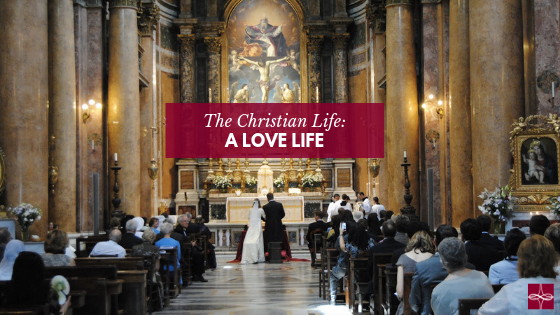

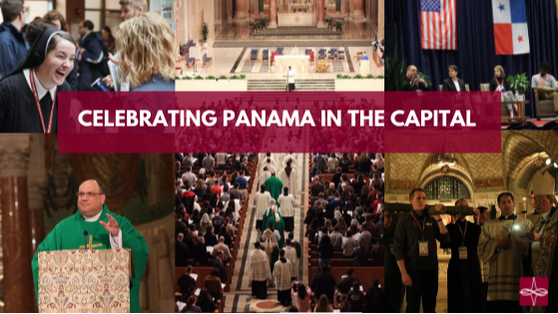
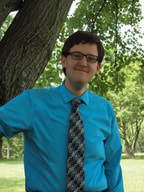
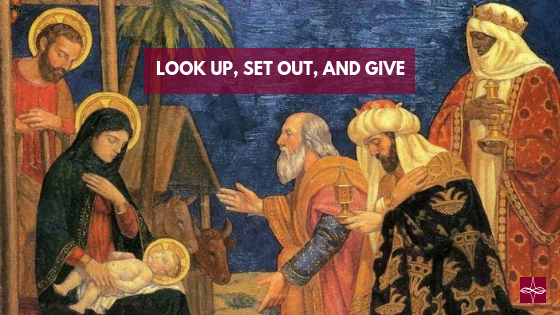

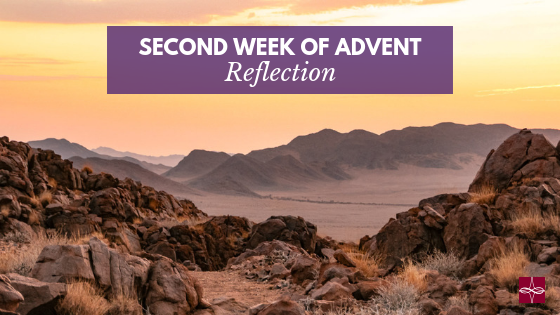
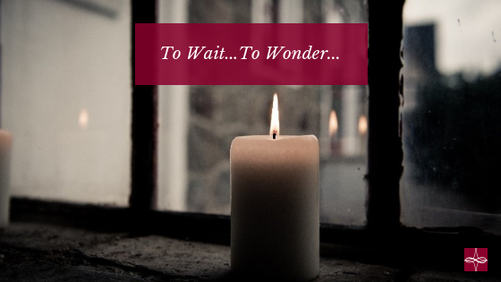

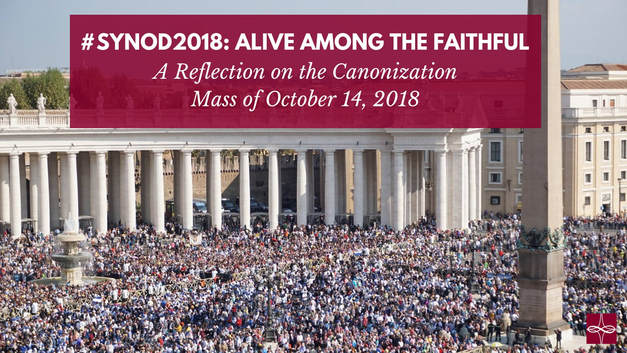
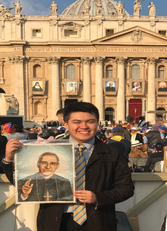
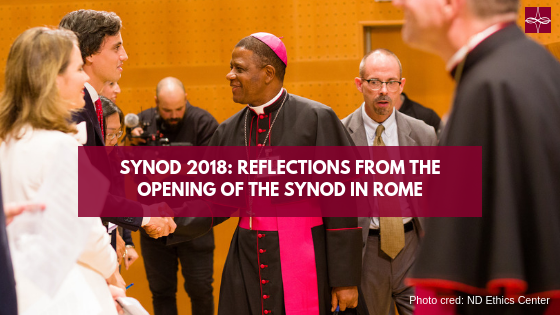

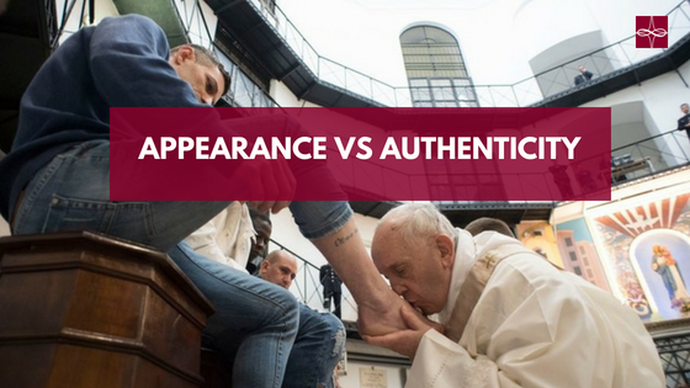



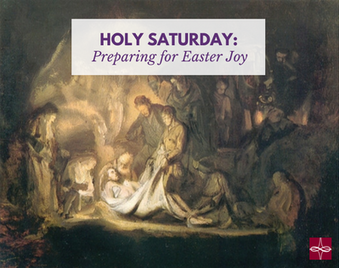

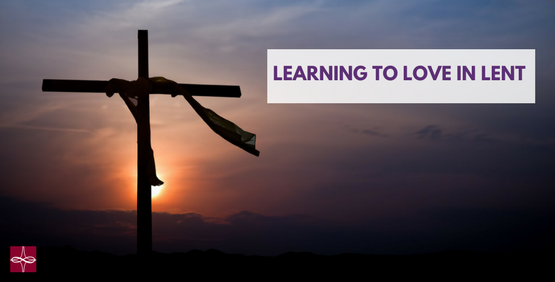

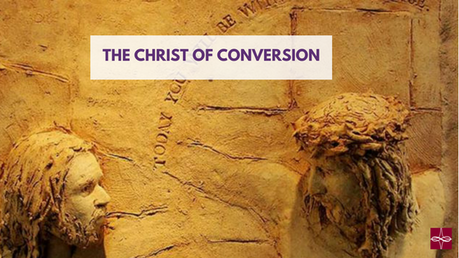

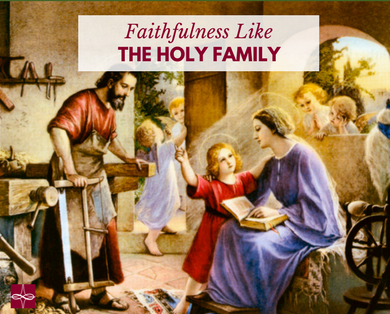
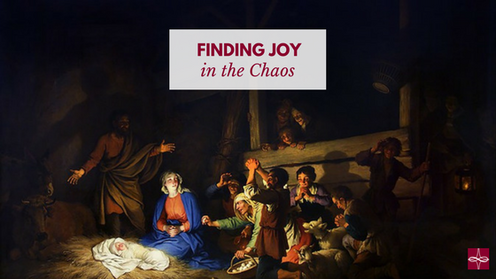


 RSS Feed
RSS Feed